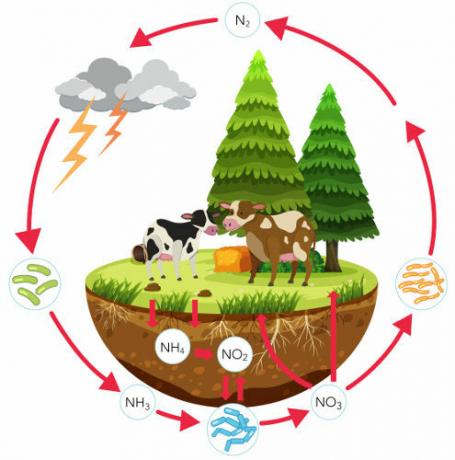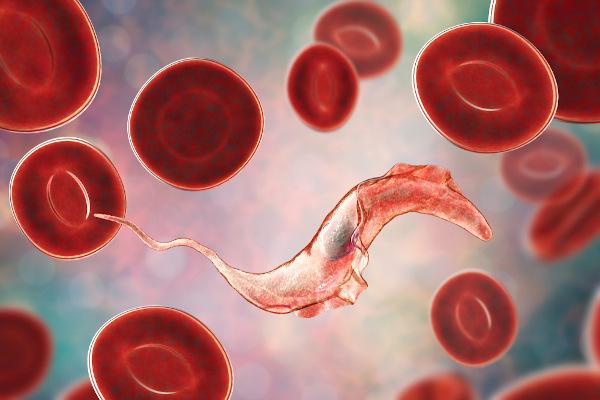When talking about bacteria we usually remember diseases, as some of these organisms are capable of cause them, with penicillin even being considered one of the greatest discoveries in the medical field for fighting many of these diseases.
However, these prokaryotic beings were and are essential for the maintenance of life on our planet, starting with the the very fact that they were the first organisms to appear on the Earth's surface, about 4.6 billion years ago. By making oxygen available to the atmosphere and reducing CO2 concentrations, they allowed the colonization of new organisms. Furthermore, mitochondria and chloroplasts are derived from endosymbiotic bacteria, that is: without the bacteria, there would be no eukaryotic cells, nor plant cells.
Decomposing and saprophytic bacteria, together with fungi, are responsible for recycling organic matter from dead and waste, such as faeces and urine, transforming it into molecules of simpler composition: essential role for nitrogen and oxygen cycles to be performed.
As for the first cycle mentioned, bacteria of the genus Rhizobium, present in legume roots, transform atmospheric nitrogen into nutrients, such as nitrites and nitrates, for assimilation by the plants. Herbivorous animals, when feeding on them; and carnivores, when feeding on these or other carnivores; they will also incorporate such substances along the food chain.
Another mutualistic association refers to the presence of certain species in the digestive system of ruminant animals and humans (Methanobacterium smithii, Escherichia coli, Lactobacillus acidophilus, and those of the genus Pseudomonas, Acinetobacter and Moraxella). There, they help break down certain substances, such as cellulose; production of vitamins such as D, K and B12; and, furthermore, they prevent the proliferation of pathogens. In the skin, they contribute to the breakdown of dead cells and elimination of waste.
Cyanobacteria can also associate with fungi, forming lichens. These, in addition to bioindicators of environmental quality, create conditions for new species colonize certain environments, can fix nitrogen and also be used in the manufacture of dyes.
Do not stop now... There's more after the advertising ;)
By Mariana Araguaia
Graduated in Biology
Brazil School Team
See more:
Bacteria in medicine, environment and food
The Importance of Fungi & Lichens
Ecology -Biology -Brazil School
Would you like to reference this text in a school or academic work? Look:
ARAGUAIA, Mariana. "Importance of bacteria for the maintenance of life"; Brazil School. Available in: https://brasilescola.uol.com.br/biologia/importancia-bacterias.htm. Accessed on June 28, 2021.
Biology

Learn more about the nitrogen cycle, an important biogeochemical cycle that ensures the circulation of this element. In this text, we will address each step of the nitrogen cycle, discuss its importance, and focus on the role of bacteria in this process. We will also present exercises on the subject.

